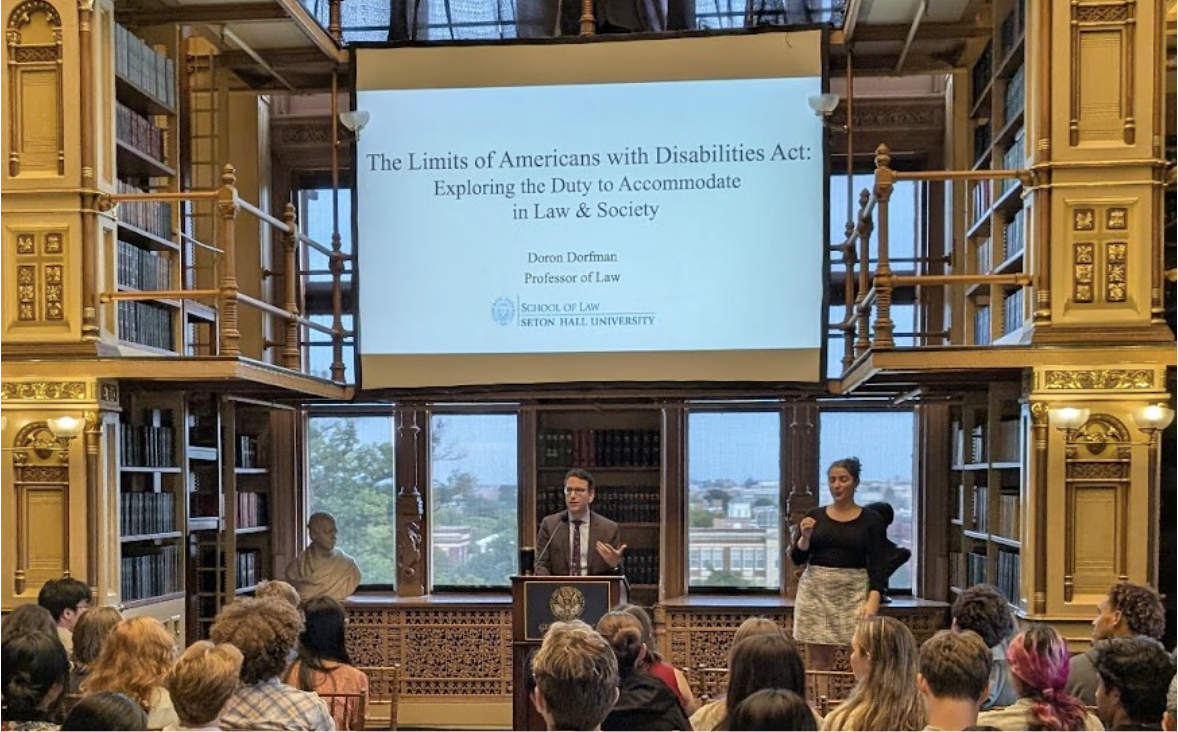The Trump administration froze medical research funding for the National Institutes of Health (NIH), the primary agency for biomedical and public health research, and National Science Foundation (NSF), which supports fundamental research and education initiatives in science and engineering, leading to concerns about ongoing research and patient care.
This follows a bill passed in December 2024 that omitted clauses permitting children with relapsed cancer to receive drug treatments and therapies and abandoned a program that gave research money to small pharmaceutical companies working on rare pediatric diseases. Children on Medicaid would lose their access to medically complex care upon crossing state lines, as well as the Gabriella Miller Kids First Research Program, which is dedicated to funding pediatric cancer research.
Emily Mendenhall, a professor in the School of Foreign Service, is a medical anthropologist with a background in cancer research who has received several grants from the NIH and NSF.
Mendenhall said she witnesses the impact funding has on research and treatment because of her research with poor communities suffering from complex chronic illnesses.
“The government pays for the majority of the research –– which they need to because not everything works –– so you really need to depend on government support because research is experimental,” Mendenhall told The Hoya.
What these budget cuts look like is unfolding, with notices sent to NSF-funded scientists to cancel any conferences, training or meetings non-compliant with the executive order. A message sent to NSF staff instructed the organization to halt any grant activity that promotes diversity, equity, inclusion and accessibility (DEIA) principles, barring research projects with words like “biases,” “socioeconomic,” “trauma” and “women.”
Mendenhall said a pause in medical studies, such as clinical trials, can put participants at risk.
“People who, especially with U.S. aid, are in the middle of clinical trials are not being followed up with and are not getting medication,” Mendenhall said. “It’s quite dangerous for some people in some studies, depending on what they are enrolled in.”
The process for receiving funding is already extensive, with each reviewer spending more than 50 hours reading applications and submitting their critiques. Federal staff prepare for months to look over and perfect research plans that will receive grants.
Rebekah Evans, an assistant professor of neuroscience and a researcher who has received NIH funding, said these policies will have consequences for current and future research.
“It is hard to overstate the destructive impact this policy will have on pediatric cancer research, and all disease research,” Evans wrote to The Hoya. “The structure and support for clinical trials will be destroyed, and the incentives to conduct foundational pre-clinical scientific research, the kind that feeds new ideas into the translational pipeline, will be basically gone.”
Beyond advancing scientific discovery, the NSF and NIH are institutions that aim to include underrepresented perspectives in scientific research. Evans said this aspect is crucial to research in the long run, as these studies lead to innovative solutions that cannot be formed by other means.
“NIH-funded foundational research builds groundwork and discoveries that are not immediately financially profitable, but lead to breakthroughs that lead to cures in the long-run,” Evans wrote.
Dhruvi Parikh (SOH ’27), the president of Georgetown’s Make-A-Wish club, which fundraises to grant wishes to children facing terminal cancer diagnoses, said funding cuts have emotional and physical consequences for pediatric patients.
“I’ve seen firsthand how essential hope is for children with life-threatening illnesses through Make-A-Wish,” Parikh wrote to The Hoya. “If budget cuts hinder medical advancements, children may lose that sense of hope, which could have devastating emotional and even physical consequences.”
Mendenhall said the new order not only undermines the nation’s leadership in scientific research, but also sets back decades of medical progress.
“If you feel like the government doesn’t have your back, that’s pretty upsetting,” Mendenhall said. “If the country you live in doesn’t care for you –– and that’s one of the things the United States has always prided themselves on, being one of the most innovative at science and technology centers –– halting this research will just put us back decades.”



